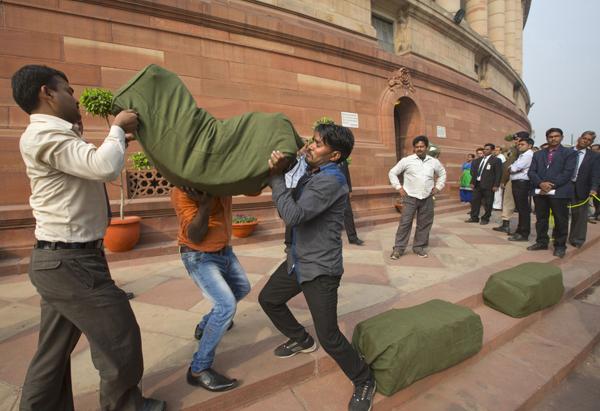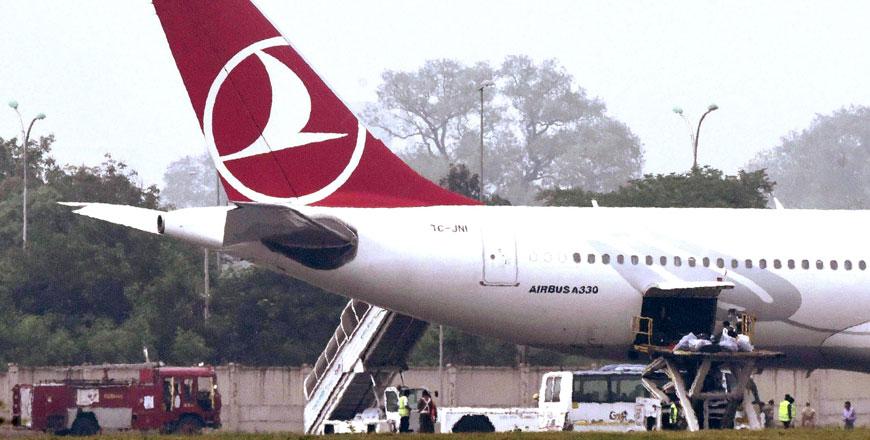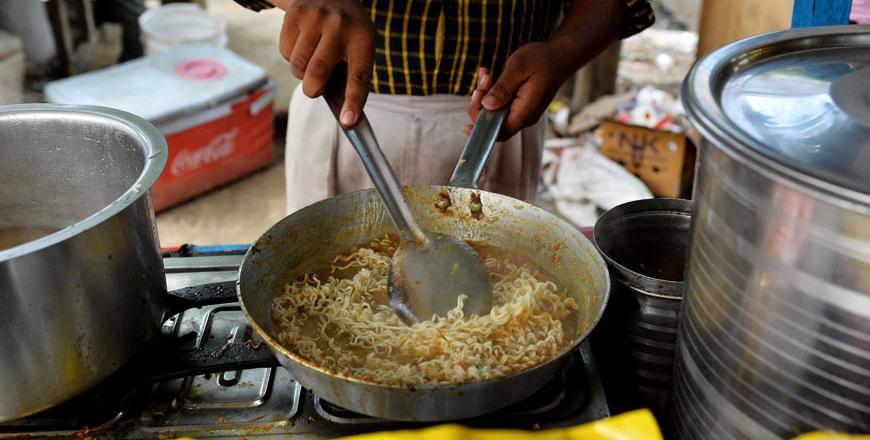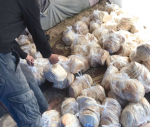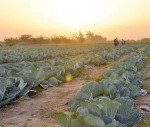You are here
Delhi faces water crisis as deadly protests hit key source
By AFP - Feb 22,2016 - Last updated at Feb 22,2016
NEW DELHI — Much of New Delhi's water supply was cut off Monday after members of an influential Indian caste sabotaged a canal as part of protests seeking preferential treatment that have killed at least 19 people.
A representative of the Jat caste said they had called off their week-long protests which saw thousands of troops deployed in Haryana, after the government of the northern state accepted their demands.
But the capital's water board was still striving to restore full supplies to the city of 17 million.
India sent troops to secure the canal in Haryana after Jat protesters — demanding a quota for their caste in public service jobs and higher education — seized it on Saturday and diverted the water flow away from the capital.
By Monday morning the army had regained control and was assessing the damage.
But with the water flow into the capital reduced by more than two-thirds, schools and many businesses remained shut and authorities urged people to ration water.
Delhi's water board said it had been forced to limit supplies to the city, which receives little rain and has long struggled to provide enough water for its rapidly growing population.
Just 240 million gallons was being produced after the attack compared to the usual 820 million gallons a day, it said.
"There is extensive damage to the canal and it will take some time to fully restore the supply to Delhi," said water board spokeswoman Sanjam Cheema.
"Engineers are working and hopefully the work will be completed by evening."
Thousands of troops had been deployed to Haryana on Saturday with orders to shoot on sight after week-long protests by members of the caste turned violent, with rioters setting fire to homes and railway stations and blocking highways.
The protests eased on Sunday after Haryana's government agreed to the Jats' demand for preferential access to sought-after government jobs and university places under India's caste-based quota system.
Rationing water
A representative of the Jats, traditional farmers who make up the single largest community in the state with nearly eight million members, told AFP they had accepted the offer and would call off the protests completely.
"We have called off the agitation since the government agreed to all our demands. We are satisfied now and have faith the government will do its part," said Yashpal Malik, head of a group of Jat organisations.
India sets aside a proportion of jobs and university places for Dalits, known as "untouchables", and for other so-called "backward castes", under measures intended to remedy centuries of discrimination.
But the policy causes resentment among other communities such as the Jats, who say it freezes them out.
The latest protests echo caste violence that swept the western state of Gujarat last August, leaving several dead.
That state saw weeks of protests by the Patidar or Patel caste, who demanded the same benefits offered to lower castes.
Haryana additional chief secretary, P. K. Das, said at least 19 people had died in the Haryana violence, which also forced the cancellation or diversion of hundreds of trains in the state after stations were set on fire.
One of India's largest carmakers, Maruti Suzuki, suspended operations at its two Haryana plants after the supplies of components were disrupted.
Das said most roads had now been reopened after being blocked by protesters and state authorities hoped to regain full control by the end of the day, although police reported some minor clashes on Monday.
Delhi's Chief Minister Arvind Kejriwal tweeted that the retaking of the canal was a "great relief" to the city. Around 80 per cent of its 17 million residents normally receive piped water, according to the water board.
Many said they had been forced to limit their use of water or buy bottled supplies.
"We have been rationing water and have ordered additional bottles of water from the market to take care of our essential needs like drinking and cooking," bank worker Rajesh Mohan Bindlish told AFP.
"We are also using buckets instead of regular showers."
Related Articles
NEW DELHI — India's government pledged billions of dollars to help struggling farmers and boost the rural economy as it unveiled its annual
NEW DELHI — Turkish Airlines flight from Bangkok to Istanbul made an emergency landing in India Tuesday after the crew found a bomb threat w
NEW DELHI — India's capital banned the sale of Nestle instant noodles Wednesday after safety inspectors found high lead levels in packets of


